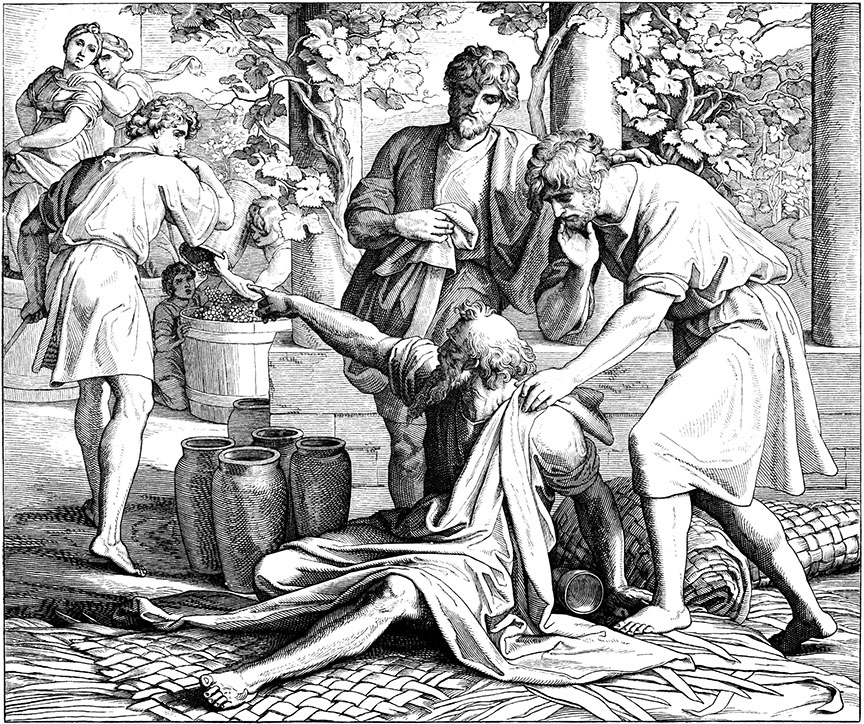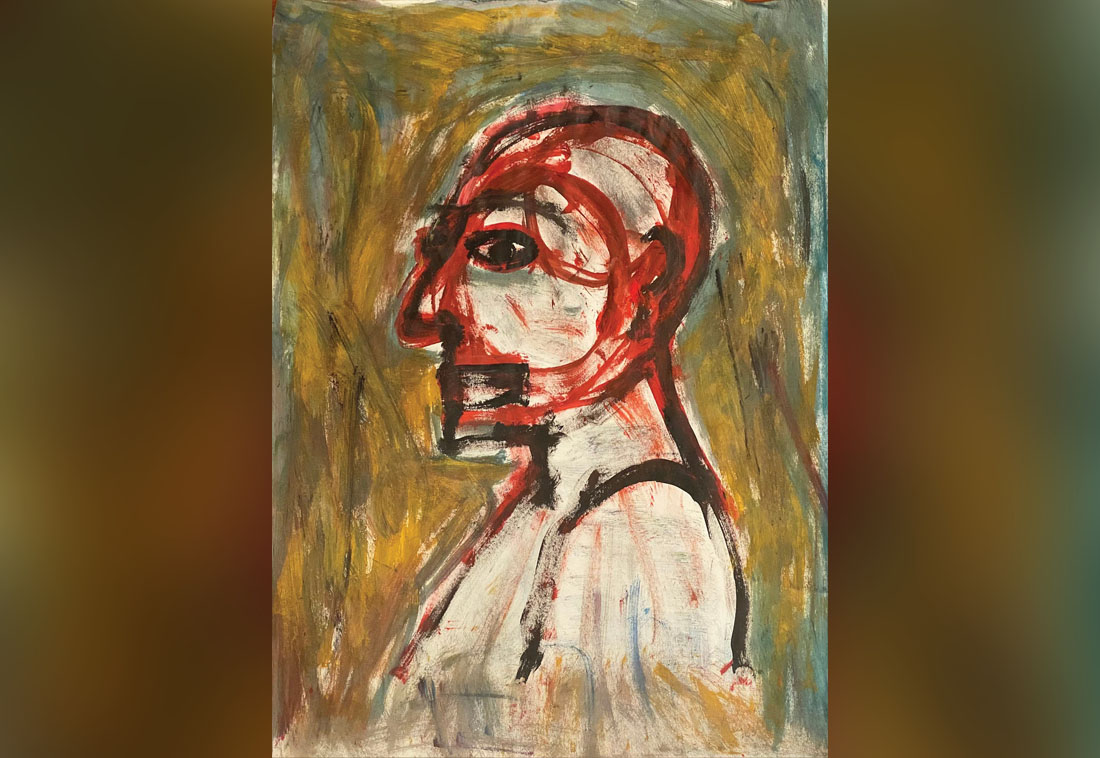
One verse, five voices. Edited by Nina Litvak and Salvador Litvak, the Accidental Talmudist
And I will make of you a great nation, and I will bless you, and make your name great; and you shall be a blessing.
– Gen. 12:2
Liane Pritikin
Writer, Public Speaker
Two questions usually lead when asking a single woman about her dating preferences:
1) How old of a guy will you date, and 2) Will you move? Earlier in my dating career (and yes, at this point it feels like a career), I would have said, “sure, I’ll go anywhere for anyone.” But the older I get, the more settled I am, and the more I just don’t want to move. At the same time, it’s hard to imagine that if I was introduced to an awesome man close to my age — someone emotionally healthy, smart, loving, kind, funny, responsible, a good listener, and all the other stuff that’s on a dating list — that I would say no to moving. But even good life change is stressful. And that’s why, even with promises of greatness and blessing by none other than the Creator of the world himself, relocation is still a test for Abraham. The line preceding our pasuk says that Abraham is to leave his country, birthplace, and father’s house. To a land that G-d will show him. But there is no detail about where. No timeline. No explanation of how this blessing and greatness will come about. At this point Abraham is 75 years old. What he has to go on is faith and trust. And that’s what the rest of us have to go on too. Knowing greatness and blessing is our birthright. But often with no specific answers to our many burning questions.
Rabbi Shmuel Reichman
Bestselling Author, International Speaker, and Business Coach
To understand why Abraham merited to become the source of the Jewish People, let us try to understand the greatness of the journey he embarked upon.
When Hashem originally commands Abraham to leave his home, Abraham is told “Lech lecha me’artzecha… — Go for yourself, from your land….” (Bereeishit s 12:1). This directive is quite strange. Abraham is told where to leave from, but he is not told his destination. What kind of journey lacks a destination?
The answer to this question lies within the words “lech lecha.” While this phrase is often translated as “go for yourself,” it can also be translated as “go to yourself.” Abraham was commanded to embark on a journey toward “himself,” toward his true and ultimate self. In a genuine journey to the self, we don’t know the destination; all we know is where we’re leaving from – where we are right now. Only once we arrive can we retroactively see where the journey was taking us all along.
To embark on such a journey, we need to step outside our comfort zone, overcome our fears, and take the unpaved and uncharted path, the path toward greatness. It was because Abraham embarked on this journey that he merited to become the source of the Jewish People. But Abraham was not the only one entrusted with a lech lecha journey. Each of us are entrusted with this mission as well – each one of us must embark on our own lech lecha journey, striving to become our ultimate selves.
Rabbi Tal Sessler
Temple Beth Zion
The second commandment that God gave Abraham is often-times overlooked. It is the commandment “to be a blessing.” What does it mean to be a blessing? According to Rashi, this means that we conclude the first paragraph of the Amidah blessing articulating Abraham’s name. In order to go deeper, and understand what it means to be a blessing for the contemporary Jew, we need to observe the life and legacy of Abraham Joshua Heschel, who was a humanitarian activist, a towering theologian, and a profoundly spiritual being. Heschel personified what it means to be a blessing. Heschel was, as a Jew, a blessing collectively to America, and to his non-Jewish environment, by advocating for civil rights. Heschel was also a blessing to his students and disciples, by being personally attuned and sensitized to their individual needs and concerns. Lastly, Heschel prayed with fiery fervor, When Heschel prayed, he was utterly absorbed in the liturgical text. In other words, he was fused with the words of the blessing. He was one with the blessing he articulated. So this is what it means to fulfill the divine imperative to be a blessing. First, it means to be a blessing to the non-Jewish environment. Secondly, it means to be a blessing to the individual who faces you directly at any given point in life. Thirdly, it means to become spiritually one with the blessing you articulate in prayer with heartfelt devotion. May we be blessed to be a blessing on all these levels.
Rabbi Chaim Tureff
Rav Beit Sefer at Pressman Academy, Author of “Recovery in the Torah”
Do Jews believe in karma? Well … this parsha is in accordance with the command from Hashem to Abraham to move from the only home he knew. In turn Abraham will be blessed with amazing things. Is this a bribe that Hashem is giving Abraham? We’re supposed to serve Hashem altruistically. Pirke Avot 1:3 states we should serve Hashem without any expectations of reward. So why all these great promises? Instead of a bribe, it could be our Jewish concept of Karma. Isaiah says, “Hail the just, for he shall fare well …Woe to the wicked, for he shall fare ill; As his hands have dealt, so shall it be done.” So karma isn’t a punishment, per se, but the energy we put out there we receive back. Hence Abraham’s reward was more a “consequence” of his action. By leaving, here are the blessings that come from the demonstration of emunah. Those struggling from addiction often hear about the Promises, which comes from the Big Book of AA, “If we are painstaking about this phase of our development, we will be amazed before we are half way through. We are going to know a new freedom and a new happiness …” This isn’t a reward per se, but the shift in energy from their past experiences. Just as Abraham’s reality shifted with his move, so we too can shift our reality with our actions. Our actions reverberate and can dictate the next step of the way. So let’s get started!
Abe Mezrich
Author of Torah | Writing on Substack
Before God destroys Sodom and Gomorrah, He consults with Abraham. “Shall I hide from Abraham what I am about to do?” God asks Himself. After all: “Abraham is to become a great and populous nation and all the nations of the earth are to bless themselves by him.”
So God reveals His plan to demolish the cities. Abraham responds by bargaining for the lives of the righteous and the wicked.
Moses promises that if we keep God’s Laws, the world will take notice. “For what great nation is there,” all peoples will ask, “that has a God so close at hand as is our God HaShem? Or what great nation has laws and rules as perfect as all this Teaching?”
God has given us a unique role in the world. We are to stand between people and God, and remind each of the other.
That is what makes us great. That is how we are blessed.


































